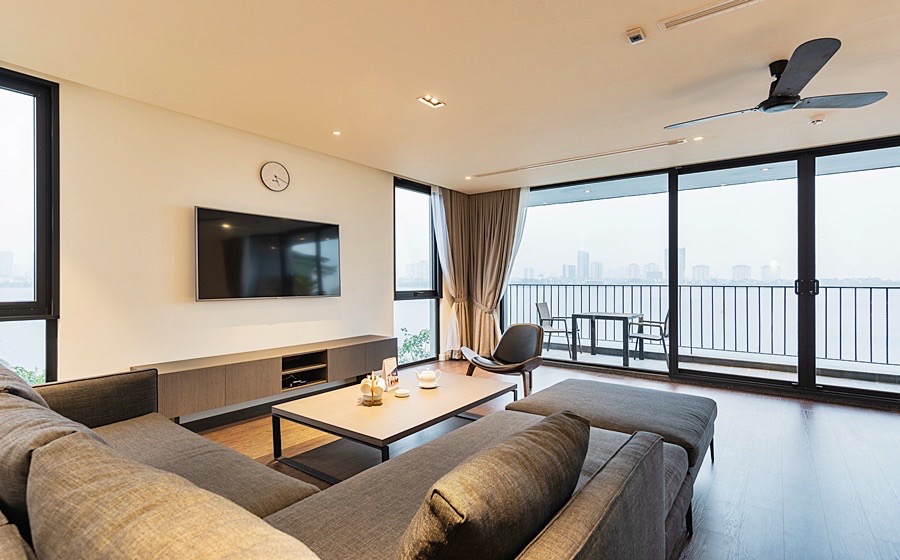Today we will together delve into a SWOT analysis to appraise the positional strength and burgeoning potential of the serviced apartment rental sector in Hanoi – an industry brimming with promise, accompanied by its unique opportunities and challenges.
Strengths: Prime Location: Hanoi, the capital city of Vietnam, is a pivotal economic, political, and cultural hub, drawing a considerable influx of foreigners and professionals for work and residency. Luxurious Amenities: The apartments are typically outfitted with premium interiors, conveniences, and services such as housekeeping and security, complemented by neighborhood facilities such as shopping centers, restaurants, and gyms. High Flexibility: Serviced apartments offer diverse contract types, ranging from short to long term, catering to a broad spectrum of clients. Professional Service Quality: Many Hanoi-based management companies boast reputable and extensive experience, providing exceptional customer care services. Significant Demand: Stemming from the growing number of foreigners and professionals requiring accommodation in Hanoi.
.jpg)
Weaknesses: Elevated Cost: Rental prices are generally steep, which may not be affordable for all customer segments. Intense Competition: The increasing emergence of large-scale serviced apartment projects with international standards. Market Volatility: Influenced by macroeconomic factors and local policies, which can impact revenue and occupancy rates. Dependence on International Clients: A heavy reliance on international clientele can heighten risks amidst fluctuations like changes in visa policies and global health crises. High Maintenance Requirements: Maintaining service quality and furnishings necessitates substantial and regular maintenance costs.

Opportunities: Real Estate Market Expansion: The flourishing serviced apartment market reflects the substantial demand for an enhanced quality of life, which can be fulfilled by the rental services. Economic Growth: Vietnam's ascending economic trajectory boosts the demand from foreign enterprises and professionals. Investment Incentive Policies: Favorable investment policies could attract more investors to embark on additional serviced apartment projects. Tourism and Event Development: Hanoi, being a popular destination, experiences increased rental demand through the organization of major events. Expanding Expat Community: A large and diverse international community underpins a stable market segment for serviced apartments.
Threats: Policy Fluctuations: Changes in investment policies, tax regulations, and real estate laws could impact business operations. Global Economic Instability: Global economic uncertainties could negatively influence investment capital and the number of foreign clients. Short-Term Rental Trend: Services like Airbnb offer flexibility and competitive pricing to tourists and professionals. Pandemics and Force Majeure: Factors such as the Covid-19 pandemic have proven that unforeseeable events can significantly shift rental demand. Cultural and Language Barriers: Misunderstandings and dissatisfaction among international clients can arise from cultural and linguistic differences.
In conclusion, the serviced apartment rental service in Hanoi has a robust foundation for growth, based on the diversity and quality of services provided. Maximizing potential requires the implementation of a strategic business approach aligned with the SWOT factors. Businesses must regularly evaluate their competitive capabilities and remain agile in adapting to the rapidly changing environment to ensure enduring success and sustainable development.